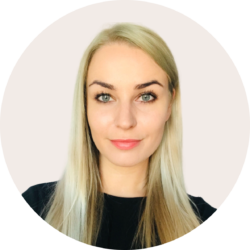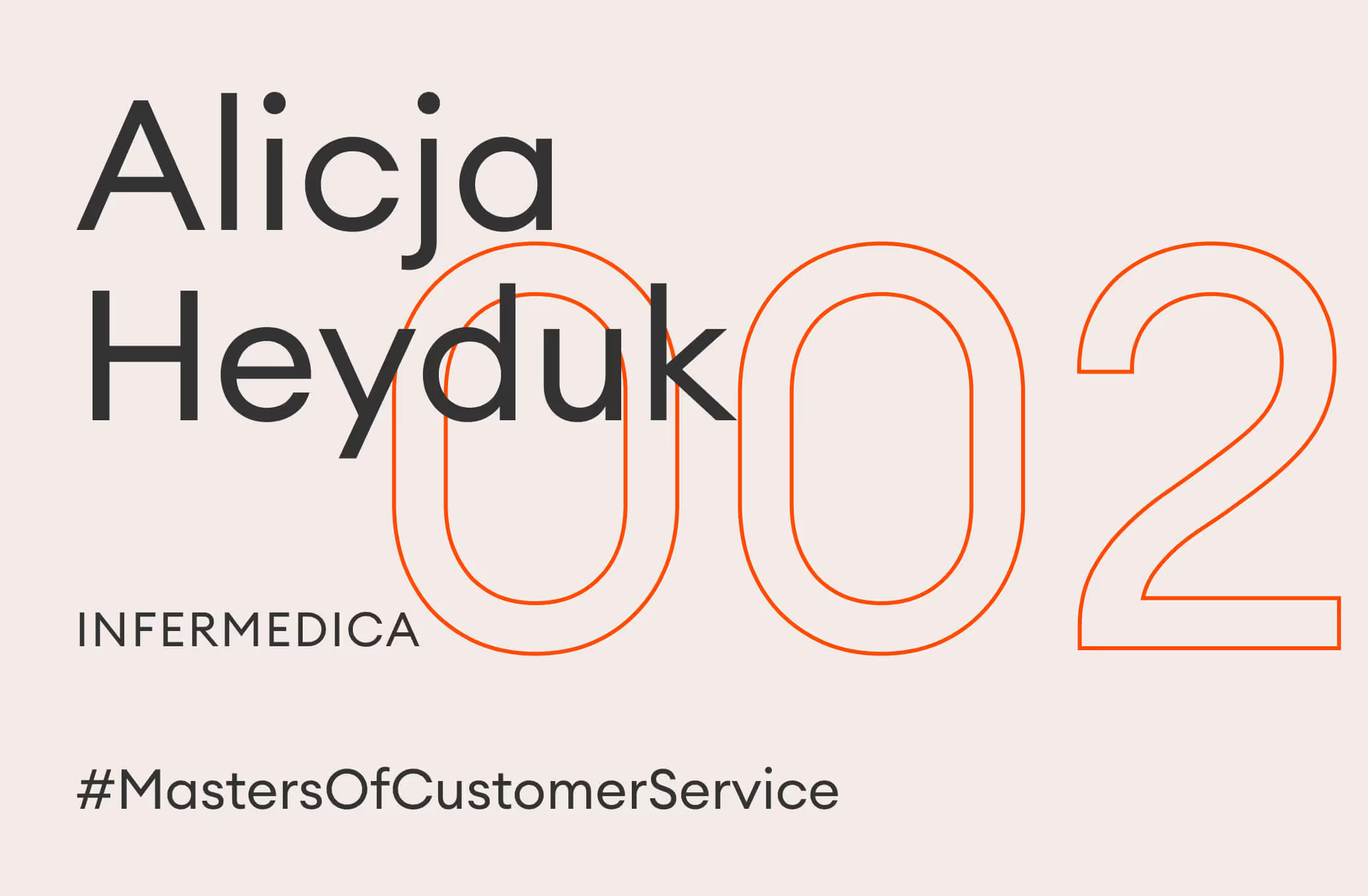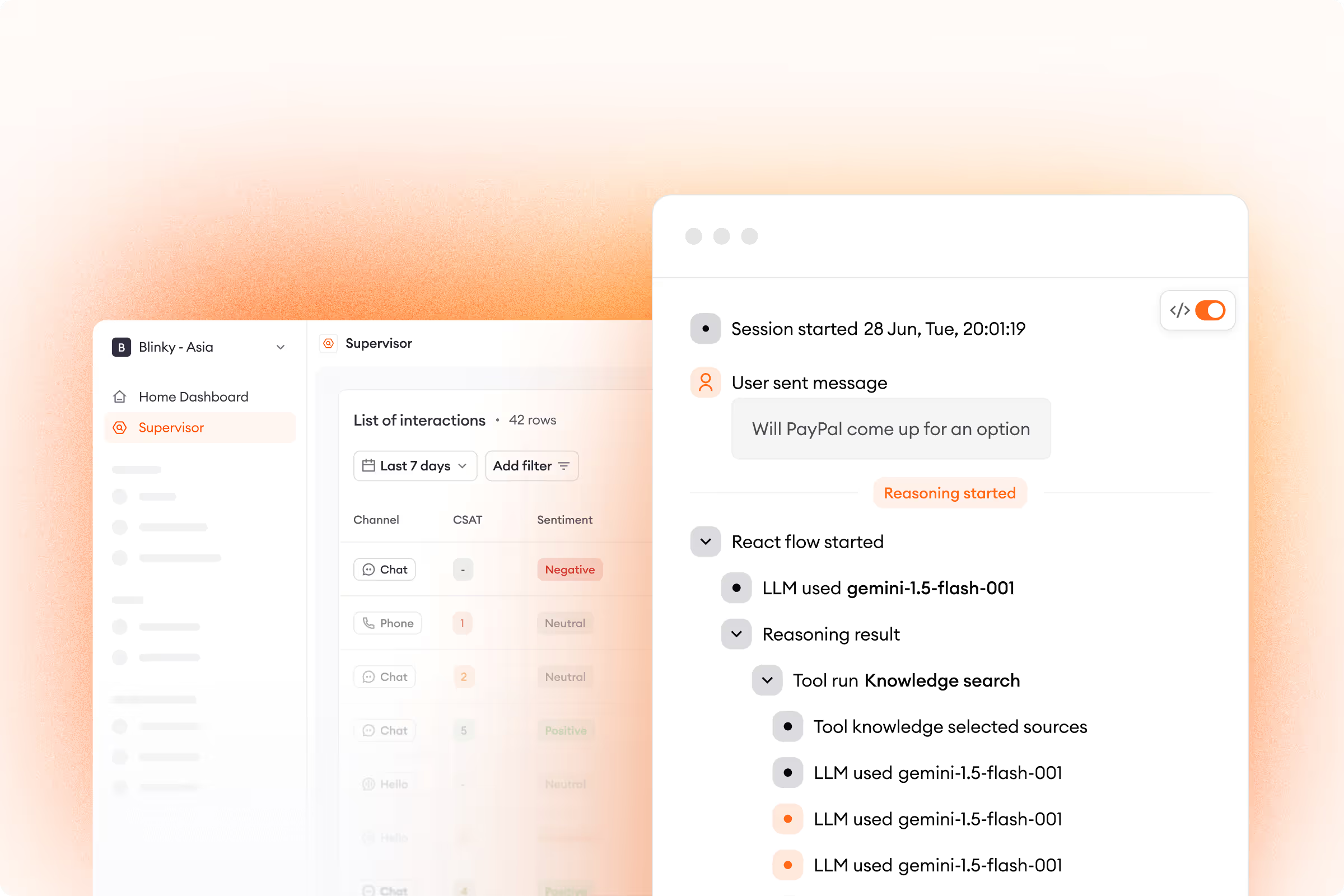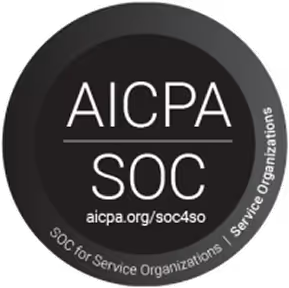They say the best way to get flawless at things is by learning from your own mistakes. We believe that it’s better to avoid failures and double down on patterns that work. If you would just have this magic knowledge...
Therefore, it is our pleasure to introduce you to our series: Masters of Customer Service. Its goal is simple: to learn from the best industry experts, as well as their experience, successes and failures. Get to know the tools they use, patterns they follow, and the mission they have.
Today we meet with – Alicja Heyduk, Head of Customer Success at Infermedica.

Alicja is an experienced Customer Success professional who believes that customer success should be a company's philosophy, built into its company's DNA. She is focused on delivering value and ensuring that the customer’s objectives are being met at every stage of the customer journey.
Alicja is responsible for aligning both the clients' and the organization’s goals for mutually beneficial outcomes. At Infermedica, she leads a Customer Success team that analyzes customer’s needs and expectations, anticipates challenges or questions, and proactively provides solutions in order to make partnerships successful. Alicja has a strong customer experience background and was listed as one of the top 100 Customer Success Strategists.
Infermedica is a healthcare IT company that was founded in 2012, developing innovative medical software for patient triage and preliminary medical diagnosis based on the latest technologies in artificial intelligence. The company’s goal is to support patients based on the individual context of the situation, delivering the best qualitative and quickest instructions for the correct health behavior. By achieving this goal, Infermedica lowers health costs, increases diagnosis efficacy, and improves the quality of care on a daily basis. More: www.infermedica.com
Check out other articles in our Masters of Customer Service series! Like our interview with Jakub Zawadzki: Masters of Customer Service #1: Jakub Zawadzki, DocPlanner
How did you make your way into the world of customer service?
I started this journey as a salesperson during my bachelor studies in Sales Management. I noticed very early on that what I loved about working with customers is not actually selling, but finding the best solution for the client. I genuinely cared about the fact that they got the most value out of whatever I was selling. That was my first job with customers. Then, I became a Customer Service Representative at Fly On The Cloud and, afterwards, I worked at LiveChat. I got feedback from them that I would be a perfect Customer Success Manager. My reaction was like: “I don’t even know what that means, but sure, I’ll take it!” From that point we started creating a Customer Success program from scratch. During that time, I was learning a lot: watching webinars, and reading books and articles to get to know this field. It was back in 2015 and CS was quite a new concept at the time. I fell in love with Customer Success instantly! At that moment, I realized this is perfectly suited for me. So I continued this path and, after LiveChat, I started working at a Piwik PRO, which is another Polish startup, where I became a Head of Customer Success. Currently, I’m leading a CS team at an amazing med-tech company - Infermedica.
That’s nice! How many people are there in your customer service teams?
At Infermedica, there are two teams responsible for taking care of customers - the Customer Success team and the Implementation team. In total, we have 8 people in our customer service teams: 3 Customer Success Managers and 5 Implementation Managers.
With which type of customer do you most often meet? People from huge corporations, medium-sized businesses, or maybe small startups?
We have quite diverse customers. From big corporations (Microsoft), hospitals (International Medical Center), and insurance companies (PZU), to small and medium businesses and startups (Dr. Sintomas, DOCYET, and Nabta Health). Every day, I can meet with different people from numerous countries and various types of companies. They have diverse goals and challenges; there’s a lot of exciting use cases.
Can you tell us how many inquiries from customers you receive each week?
It's quite tricky because, as I mentioned, we have CSMs and Implementation Managers. We work closely with our partners, and a huge part of our communication is handled via calls, video conferences, or emails. Because of this, it's difficult to count them all and say on average how many inquiries we receive each week. We also have a support portal, which our customers can log in to and submit support tickets, add feature requests, report technical issues, etc.
How do you measure customer satisfaction? What are the pros and cons of your approach?
We use typical customer service satisfaction surveys like NPS and CSAT, but we also ask for detailed feedback during periodical meetings with our customers.
Regarding the surveys - we request our clients to rate their satisfaction after we resolve a support case and, once a quarter, we send the NPS survey with an easy question: “From 0 to 10, how likely would you recommend Infermedica?”. After getting a response, we always follow up on that by asking for more information. If we receive a bad score, I always try to set up a meeting with the client. I want to get to the root cause of why they aren’t satisfied enough to recommend us. The disadvantage of such surveys is that, if they don’t reply to you with more detailed feedback, you don’t know what the score really means. One of my favourite clients always gives us 8 out of 10. He did tell me that for him 8 is the highest score, he simply never gives 10 out of 10 - I accepted the challenge by the way, and I still think that one day we will amaze him enough to get a 10 :)
For me the best way of measuring customer satisfaction is to actually talk to our clients. I can personally ask if we deliver the expected value, I can find out what can we improve, what they like or don’t like about Infermedica, and why.
What is the customers’ attitude when you want to schedule a call with them and talk about their feedback?
At Infermedica, we call our customers our partners, and they are the best people I’ve ever worked with. Honestly, I’ve never seen such engaged customers in my life (and I’ve been in this for quite some time). It is a genuine two-way partnership. They often say ‘your success is our success’ and they want us to improve, so their clients or end-users also have the best possible experience. When I’m asking them for a call, they usually schedule it.
"Sometimes the bad NPS score is the result of something that’s easy to fix and can be quickly improved".
In one case, there was an API customer who implemented the API incorrectly, so the tool didn’t work as expected. We did a technical review of their app with our dev team, we sent him the report with our recommendations and best practices on how to improve their application, and we managed to solve the problem.
What tools do you use in your daily work?
For calls, I use Google Meet and Zoom (sometimes I need to record the meeting, especially when it's a discovery call, which includes a lot of information about a customers’ needs and goals), and we use HubSpot as a CRM, and Freshdesk as a ticketing system, while for analytics we use Google Data Studio. For NPS we use Wootric. Slack is used for internal communication in our company.
How do you start your work every day? Do you have any morning routine?
Actually, yes. I recently started a new morning routine, my friend was pushing me to do it for a long time and I finally gave in. I’m so glad I did, and I certainly recommend it! I wake up every day at 7.30 a.m, make my bed, and then I meditate for 15 minutes. I use the Headspace app, which is great. You have to try it. After that, I’m getting ready, doing my makeup and all the usual stuff associated with mornings. While I am getting ready, I listen to some podcasts or audiobooks.
I’ve discovered that usually, when I don’t do anything and I want to listen to a podcast or an audiobook, I always get distracted and I’m not paying attention to what’s on the other side. But when I do something, such as getting ready to work - I can focus easily. When I’m done, and I’m ready to work, I sit in front of my computer with a coffee, and I get started.
How do you deal with stress and overwork?
It took me some time to learn how to deal with work-related stress. I used to be so worried all the time, especially about the things I couldn’t control. But now, I try to keep it cool, not to make hasty decisions, to stay positive, and, you know, no matter how bad the situation seems to be - it always gets better eventually. You always somehow find the solution. And when you take a retrospective look at it, it doesn’t seem so big of a deal anymore. You passed through it, and now you’re okay. When I do feel overwhelmed or when there is a heated situation, I reach out to people I trust to share my thoughts out loud. It’s not even about asking for advice, as sometimes even just explaining the situation to someone else can help you find a solution. Maybe you’ve heard that developers sometimes use the term - rubber duck debugging. If you talk to an object, like a yellow rubber duck, you can find the solution and you can debug the problem and then fix the issues. This approach works similarly with non-technical problems, and with people instead of rubber ducks :)
In your opinion, what features should an excellent customer service representative have? What skills should make this person stand out from the crowd? Why are these skills so important?
The obvious ones:
- empathy - they should be able to put themselves in someone else’s shoes to solve their problems;
- communication skills;
- problem solving skills;
- being solution-oriented;
- active listening skills - to find the best solution for customers, you need to dig into their needs and problems;
- ability to work under pressure - not everything goes as we expect. Sometimes there are some bumps in the road and your job is to give customers some bad news;
- ability to work efficiently with various teams (marketing, sales, product);
- teaching skills - being able to explain complex concepts in simple terms;
- patience.
But there are additional skills I’m looking for in Customer Success Managers:
- proactivity - you need to reach out to customers, ask the right questions to really discover what success means to them and how we can help them accomplish their goals;
- curiosity, thirst for knowledge and learning;
- resilience - you can’t give up when something goes wrong;
- emotional intelligence and flexibility - you have to be aware of your emotions, as well as the customers’ emotions. Everyone is different, so you need to be able to adjust to various situations and people;
- not getting easily distracted.
These are great tips! You’ve mentioned that you are listening to a lot of podcasts and audiobooks. Is there any book or maybe a podcast which you’d recommend? If yes, then why?
Of course! Here are some podcasts which I highly recommend:
- Gain Grow Retain - a podcast dedicated to customer success leaders in the B2B SaaS and tech space; Jeff Breunsbach and Jay Nathan share conversations about growing and scaling subscription model businesses with a customer-first approach
- The Customer Success Podcasts by Gainsight - stories, perspectives, and best practices around the leading Customer Success programs
I enjoy listening to podcasts in the form of interviews because I’m very curious about how different Customer Success professionals are dealing with certain situations. I think it’s because, when I started my career in Customer Success, I was kind of alone. I didn’t know anyone who had experience in CS, and all I wanted is to devour the knowledge and wisdom from more seasoned leaders in that field. The audiobook I’m listening to at the moment is ‘The five dysfunctions of a Team’ by Patrick Lencioni - and I’m digging it. I love the storytelling.
If you could hire a celebrity/a public person to your customer service team, who would that be and why? :)
I was actually even thinking about this one for some time, and I even talked with my teammates about it because it really made me smile. We figured out that the best person would be Emma Watson because she seems to be very kind, warm, well spoken, intelligent, and kind of funny.
How will—in your opinion—customer support look like in five years?
Some parts of customer support will be automated - in a smart AI way - and it’s happening right now. But I think that people will still need a human touch because they want to feel heard and understood, and because of that, I don’t believe that AI will completely replace Customer Success or Customer Service Representatives. It could complement them and make their work more comfortable, as well as more efficient, and they will be able to focus on more important things.
Is there any industry which sounds interesting that you’d want to try your hand at as a customer service manager? If yes, then why?
"For me, it’s not really about looking for an interesting industry I could work at. It’s about the vision and the goals of the company".
So with Infermedica, I didn’t think ‘oh cool, healthcare industry’. I saw the problems that this company wanted to solve - too few doctors, limited access to healthcare and unsustainable healthcare systems. And I wanted to be a part of the organization that has a real impact, is transforming the healthcare industry and can actually help people.
That's a really great attitude and I totally appreciate that! Is there any piece of advice concerning customer service which you would like to share with us?
I always say that it’s important to realize that it’s a privilege to be a part of your customer’s life. And whatever we do, we should always aim to create a customer experience that reflects it. I know it’s quite general, but if you cherish your customers and you have a customer-centric approach, the rest will follow.
Want to hear from our other masters of customer service? Check out our interview with Mariana Koudela: Masters of Customer Service #3: Mariana Koudela, Perlego
.avif)

.avif)
.svg)







